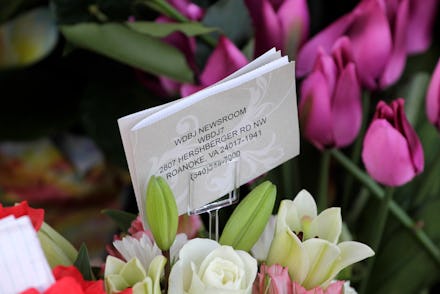The U.S. Is Officially Averaging More Than One Mass Shooting Every Day So Far in 2015

With the fatal shooting on live television of Virginia's WDBJ journalist Alison Parker and cameraman Adam Ward on Wednesday, the nation was once again drawn into the latest installment of a very old debate: gun control.
With both sides of the issue already staking out their usual positions, new analysis shows the United States has averaged one mass shooting for every day of 2015.
As of Aug. 26, the 238th day of the year, there had been 247 mass shootings.
The data, which was compiled by the tongue-in-cheek subreddit /r/GunsAreCool defined "mass shooting" as any incident where four or more people were shot, including the gunman. The Guns are Cool definition is more expansive than the FBI's, which requires at least three people dead for an attack to reach the threshold of mass killing. This vague methodology has generated some controversy, according to the Washington Post.
"I think it's grotesque. It's as horrifying to us as it was to the rest of America," Ladd Everitt, director of communications at Coalition to Stop Gun Violence, said of the most recent incident. In statement to Mic, he added:
It seems, however, to be a natural consequence of a society with a total lack of firearms regulations. This is not a guy that woke up [one] morning and decided to do this heinous act. Until we take action to deny firearms to individuals like this — like every other industrialized nation has done — we're going to see this happen again and again.
While Everitt said he was hopeful the country was moving toward a consensus on smarter gun management, and Andy Parker, the father of one of the slain journalists, has vowed to take up the fight in Virginia, recent history indicates it will be more than just an uphill struggle.
After the 2012 massacre at Sandy Hook elementary school in Newtown, Connecticut, which left six adults and 20 children dead, President Barack Obama launched the most serious attempt at gun control of his presidency. The National Rifle Association — and its Republican allies in Congress — stopped him cold. After the Charleston, South Carolina, shooting, where a white supremacist gunman killed nine in a historically black church in June, no serious effort was gun control was even attempted.
Still, Everitt was hopeful. "[The] same platitudes and bumper sticker arguments are becoming more an more tired," he said. "I certainly have a sense that the country is becoming fed up with this."
h/t Washington Post